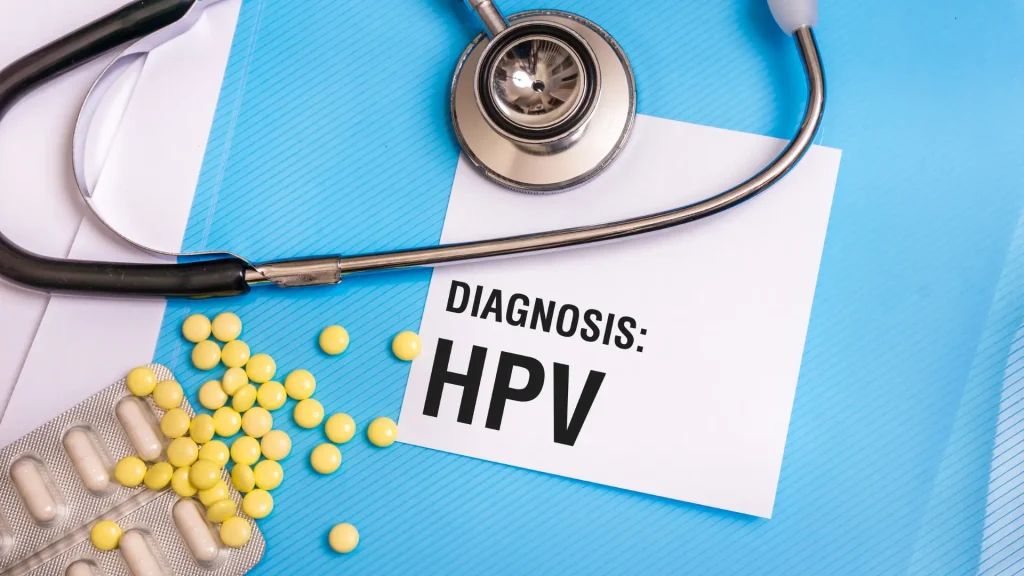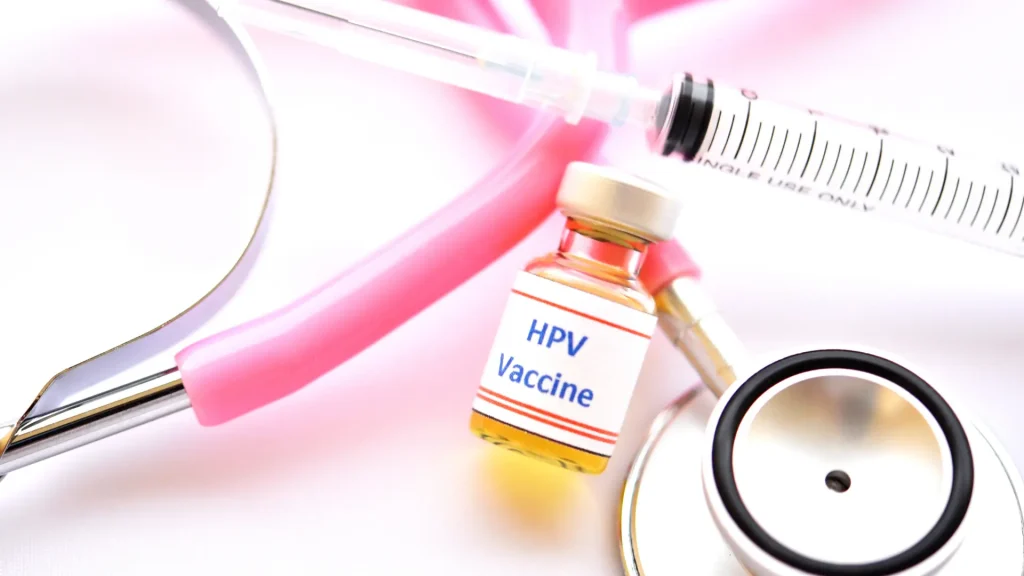In essence, the HPV vaccination represents one of the most significant advancements in modern preventive medicine and a cornerstone of lifelong women’s wellness. This guide has walked you through the essential facts, explaining that HPV is a common virus, but one that can lead to serious health issues, most notably cervical cancer.
We have detailed how the vaccine works not to treat, but to prevent infection from the highest-risk HPV types, effectively acting as a shield. We’ve clarified the ideal vaccination window for both boys and girls, addressed the overwhelming scientific consensus on the vaccine’s safety, and highlighted its crucial role as a primary tool in preventive gynaecological care.
Ultimately, the key takeaway is that getting vaccinated is a proactive, empowered decision to protect your own health or the future health of your children. While this article provides a wealth of information to answer your questions and ease your concerns, the final and most important step is a personal consultation.
Visiting a trusted HPV vaccination clinic allows a gynaecologist to review your specific health profile and administer the vaccine safely. It is the definitive action you can take, moving from knowledge to prevention and securing a healthier tomorrow.
Introduction
In the world of women’s health, we talk a lot about checkups and treatments. But what if you could prevent a major health problem before it even starts? That’s the incredible power of the HPV vaccine.
You may have heard about it, but you might also have a lot of questions. Is it safe? Who needs it? Why is it so important?
At Borneo Hospitals, we believe that knowledge is the key to empowerment. Our goal is to provide clear, trustworthy information so you can make the best decisions for your family’s health. This guide, with insights from our expert gynaecologist Dr. Vrushali Pillai, will walk you through everything you need to know about this life-saving vaccine, a cornerstone of preventive gynaecological care. Visiting an HPV vaccination clinic is a proactive step for long-term wellness.
What is HPV (Human Papillomavirus)? The Asli Dushman (Real Enemy).
HPV is a very common virus. In fact, most sexually active people will get it at some point in their lives. For the vast majority, the body’s immune system clears the infection on its own, and it causes no problems.
However, certain high-risk types of HPV can persist in the body and cause changes to cells that can eventually lead to cancer. The most well-known of these is cervical cancer, which is a major women’s health issue in India. HPV can also cause other cancers in both men and women, as well as genital warts. The vaccine is your best defence against this asli dushman (real enemy).
How Does the HPV Vaccine Work? A Shield Against Cancer.
The HPV vaccine is a perfect example of preventive medicine. It works by introducing your immune system to a tiny, harmless part of the virus. This allows your body to build powerful antibodies.
Then, if you are ever exposed to the real HPV, your immune system is bilkul (absolutely) ready to fight it off before it can cause an infection and lead to cell changes. It doesn’t treat an existing infection; it prevents a future one. Making an appointment at an HPV vaccination clinic is like giving your body a protective shield.
Who Should Get the HPV Vaccine and When? The Ideal Age Window.
Why It's Crucial for Girls
The primary goal is to prevent cervical cancer. In India, cervical cancer is the second most common cancer among women. By getting vaccinated, a young girl drastically reduces her risk of developing this disease later in life. It is the most important part of preventive gynaecological care you can provide for your daughter.
Why Boys Need It Too
This is a point many people miss. HPV can cause cancers in men as well, including cancers of the throat, penis, and anus. Vaccinating boys not only protects them but also helps reduce the overall spread of HPV in the community, which in turn protects girls. A visit to an HPV vaccination clinic is an important step for every child.
The recommended age for vaccination is typically between 9 and 14 years old, when a two-dose schedule is usually sufficient. For those who start the series later (ages 15-26), a three-dose schedule is needed.

Is the HPV Vaccine Safe? Addressing Common Concerns.
Yes, the HPV vaccine is very safe. It has been used for over 15 years and has been given to hundreds of millions of people worldwide. Major health organisations across the globe, including the World Health Organisation (WHO) and the Indian Academy of Paediatrics (IAP), have studied it extensively and have confirmed its excellent safety profile.
Understanding the Side Effects
Like any vaccine, it can have some minor side effects. The most common are pain, redness, or swelling in the arm where the shot was given. Some people might experience a mild fever, headache, or feel a bit tired. These are temporary signs that the body is building immunity and are much less severe than the diseases the vaccine prevents.
The HPV Vaccine and Cervical Cancer Screening: Do I Still Need Pap Tests?
Yes, absolutely! This is a very important point. The vaccine protects against the most common high-risk types of HPV, but not all of them. Therefore, regular cervical cancer screening with a Pap test (or an HPV test) is still essential for all women, even those who have been vaccinated. Think of them as two different layers of protection. A regular well-woman checkup should always include this screening.
How to Get Vaccinated: Your Next Steps
Getting vaccinated is a straightforward process. The first step is to visit a trusted women’s health clinic or find a gynaecologist near me. You can consult with a lady doctor or paediatrician to discuss your or your child’s vaccination history and schedule the first dose. At our HPV vaccination clinic at Borneo Hospital, we make the process simple and comfortable.
A Simple Shot for a Healthier Future
n essence, the HPV vaccine represents one of the most significant advancements in modern preventive medicine and a cornerstone of lifelong women’s wellness. This guide has walked you through the essential facts, explaining that HPV is a common virus, but one that can lead to serious health issues, most notably cervical cancer.
We have detailed how the vaccine works not to treat, but to prevent infection from the highest-risk HPV types, effectively acting as a shield. We’ve clarified the ideal vaccination window for both boys and girls, addressed the overwhelming scientific consensus on the vaccine’s safety, and highlighted its crucial role as a primary tool in preventive gynaecological care.
Ultimately, the key takeaway is that getting vaccinated is a proactive, empowered decision to protect your own health or the future health of your children. While this article provides a wealth of information to answer your questions and ease your concerns, the final and most important step is a personal consultation. Visiting a trusted HPV vaccination clinic allows a gynaecologist to review your specific health profile and administer the vaccine safely.
It is the definitive action you can take, moving from knowledge to prevention and securing a healthier tomorrow.

Consult Our Experts
Deciding to vaccinate is a powerful step in protecting your family’s future. For a personal consultation and to get vaccinated in a safe, comfortable environment, we encourage you to consult with the expert doctors at Borneo Hospitals.
You can visit your nearest Borneo Hospital branch in Thane, Nashik, Waluj, or Raipur to use our HPV vaccination clinic services.
If it’s easier for you, you can also call our helpline for advice. We invite you to make an appointment with our esteemed Obstetrician and Gynaecologist, Dr. Vrushali Pillai (MBBS, DGO). She can answer all your questions and help you take this important step in preventive health.
Further Reading & Authoritative Sources
- World Health Organisation (WHO): Human papillomavirus (HPV) and cervical cancer
- Indian Academy of Paediatrics (IAP): IAP Recommendations on HPV Vaccination
- U.S. Centers for Disease control and Prevention (CDC): HPV Vaccine Information for Parents
- The Lancet (Research Paper): The effects of the national HPV vaccination programme in England, UK, on cervical cancer and grade 3 cervical intraepithelial neoplasia incidence: a register-based observational study



